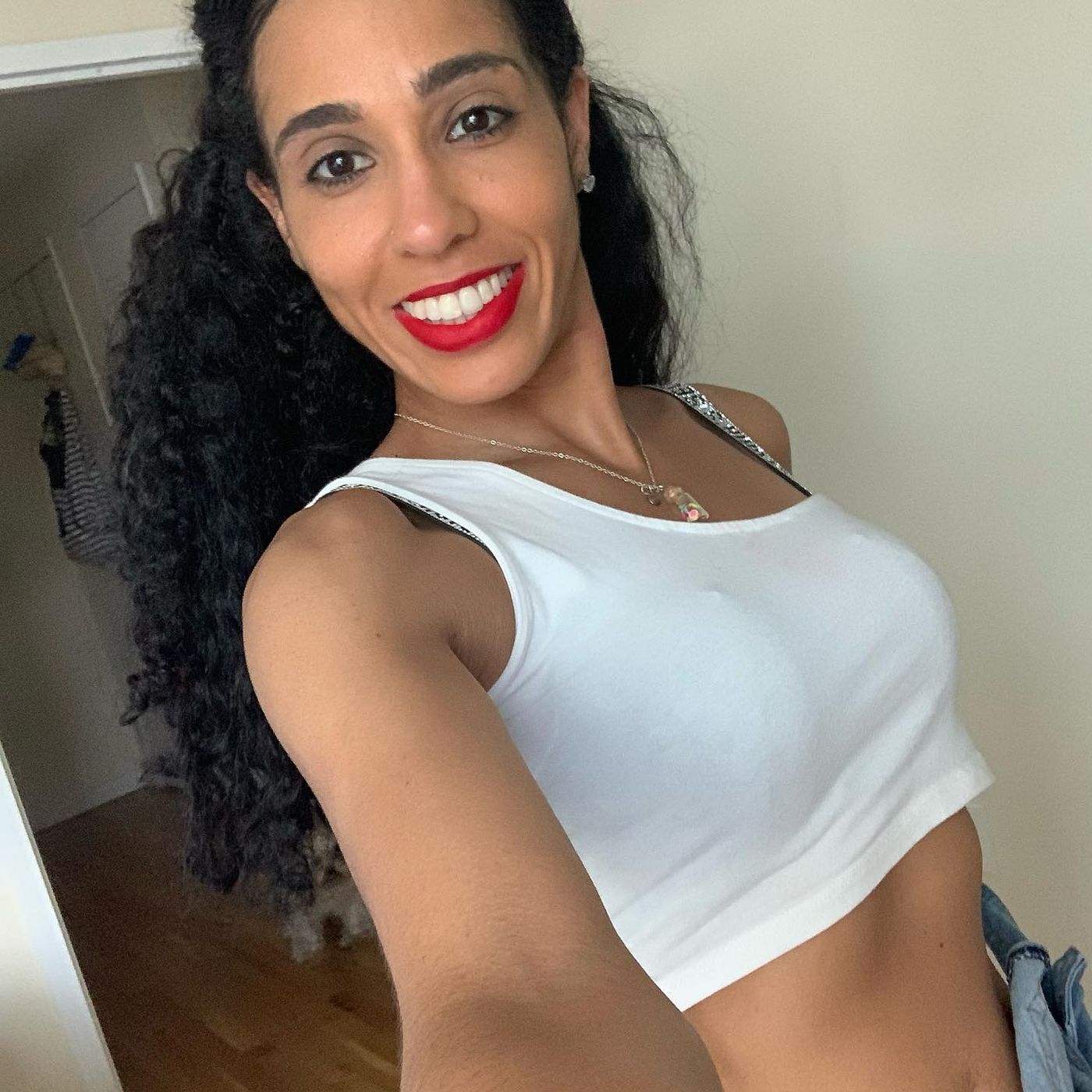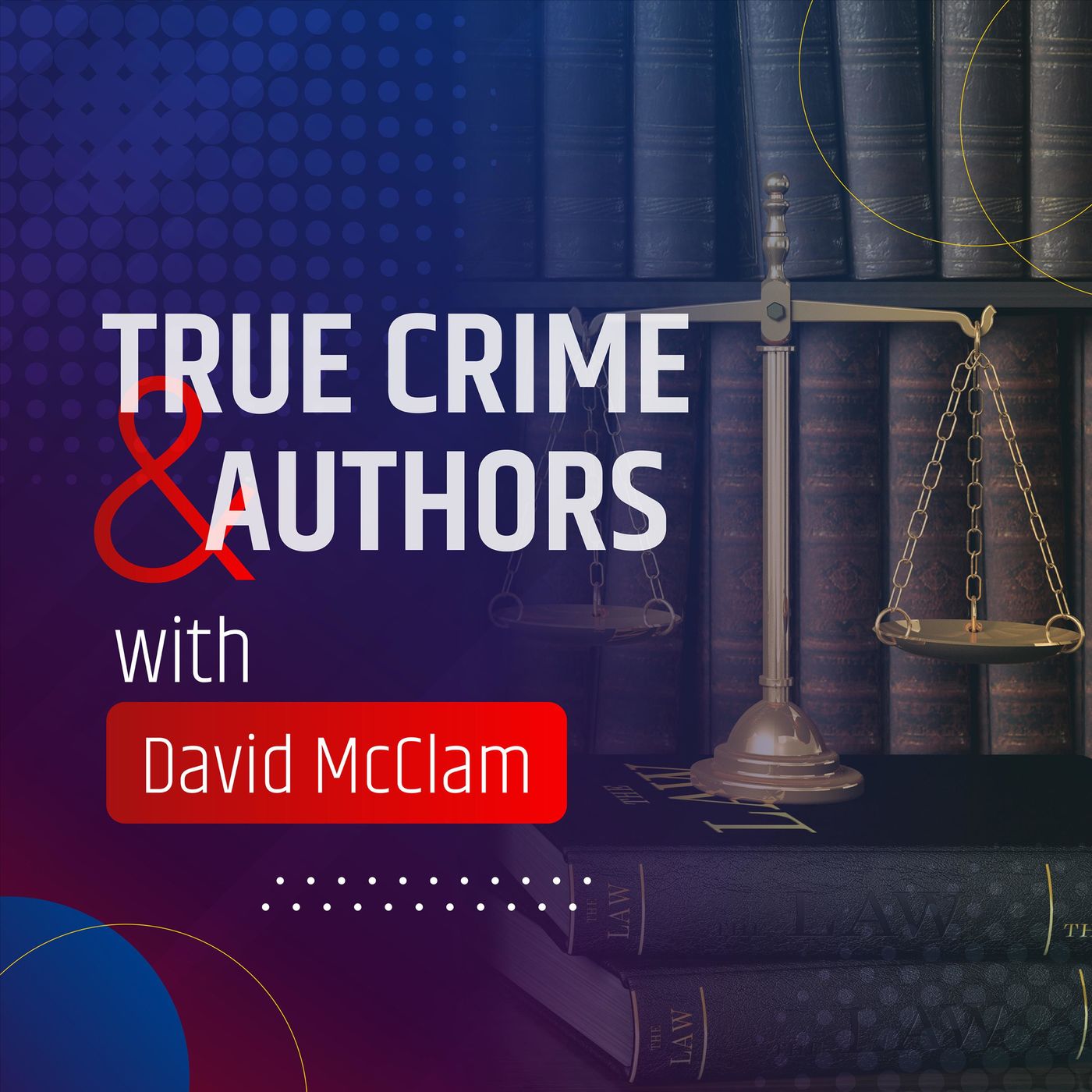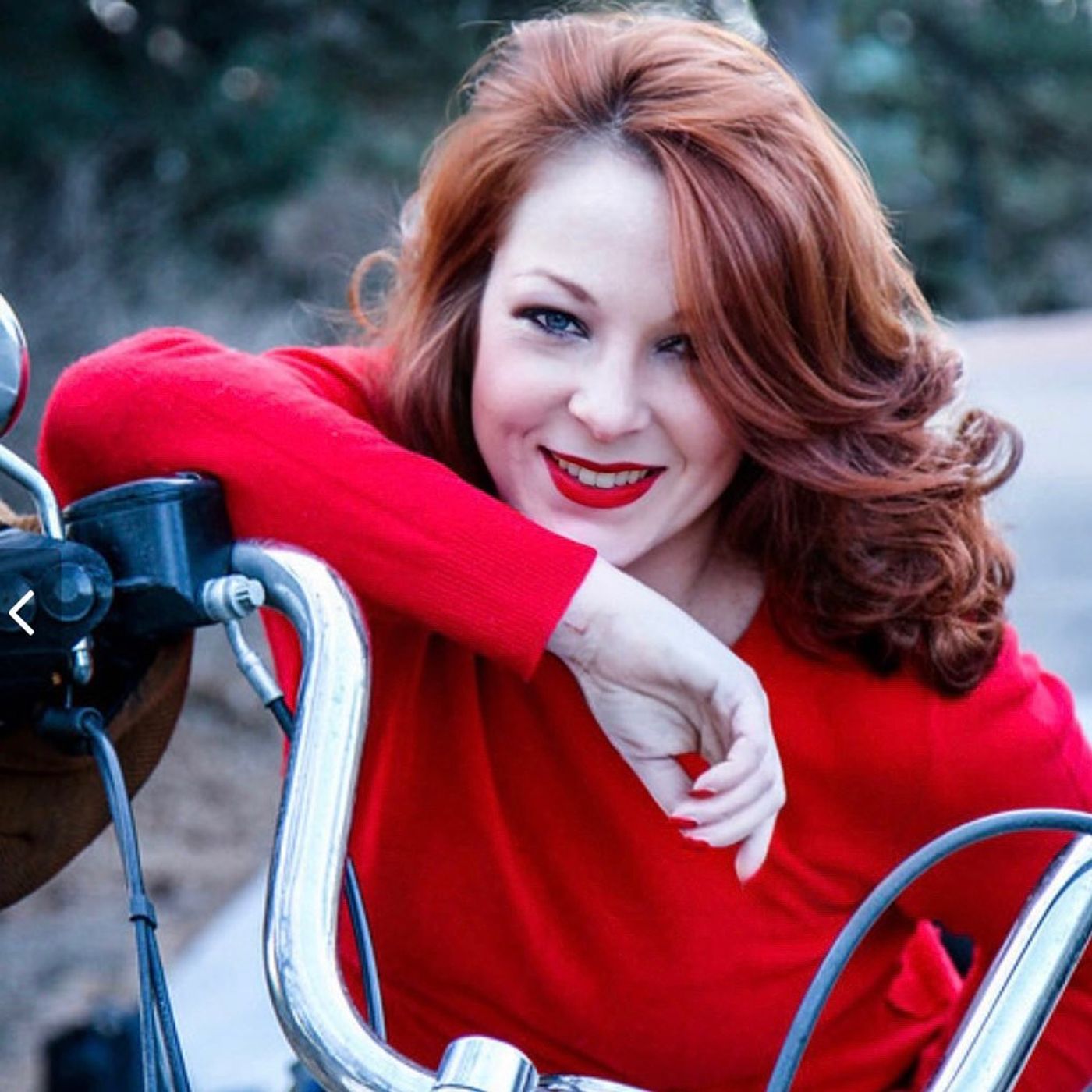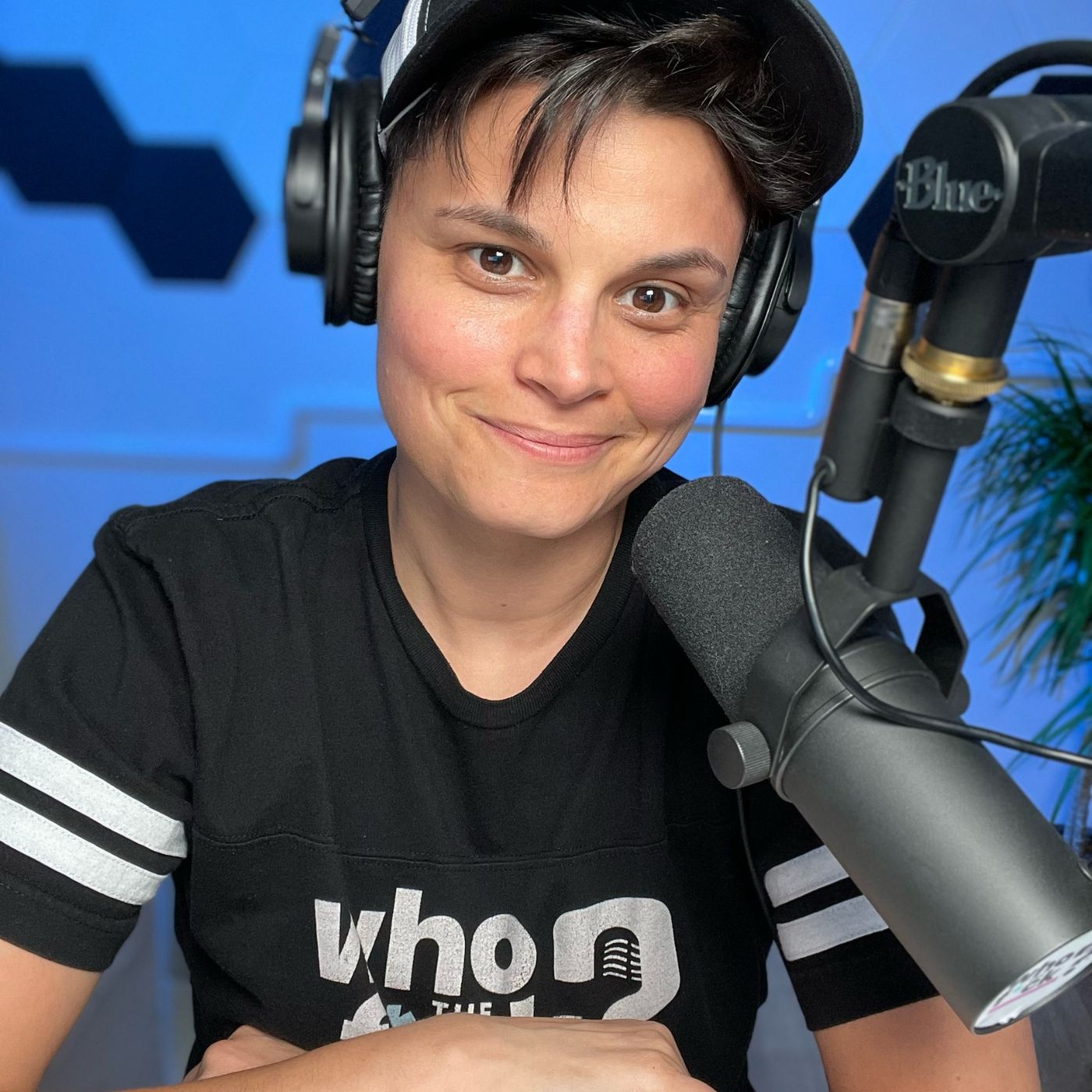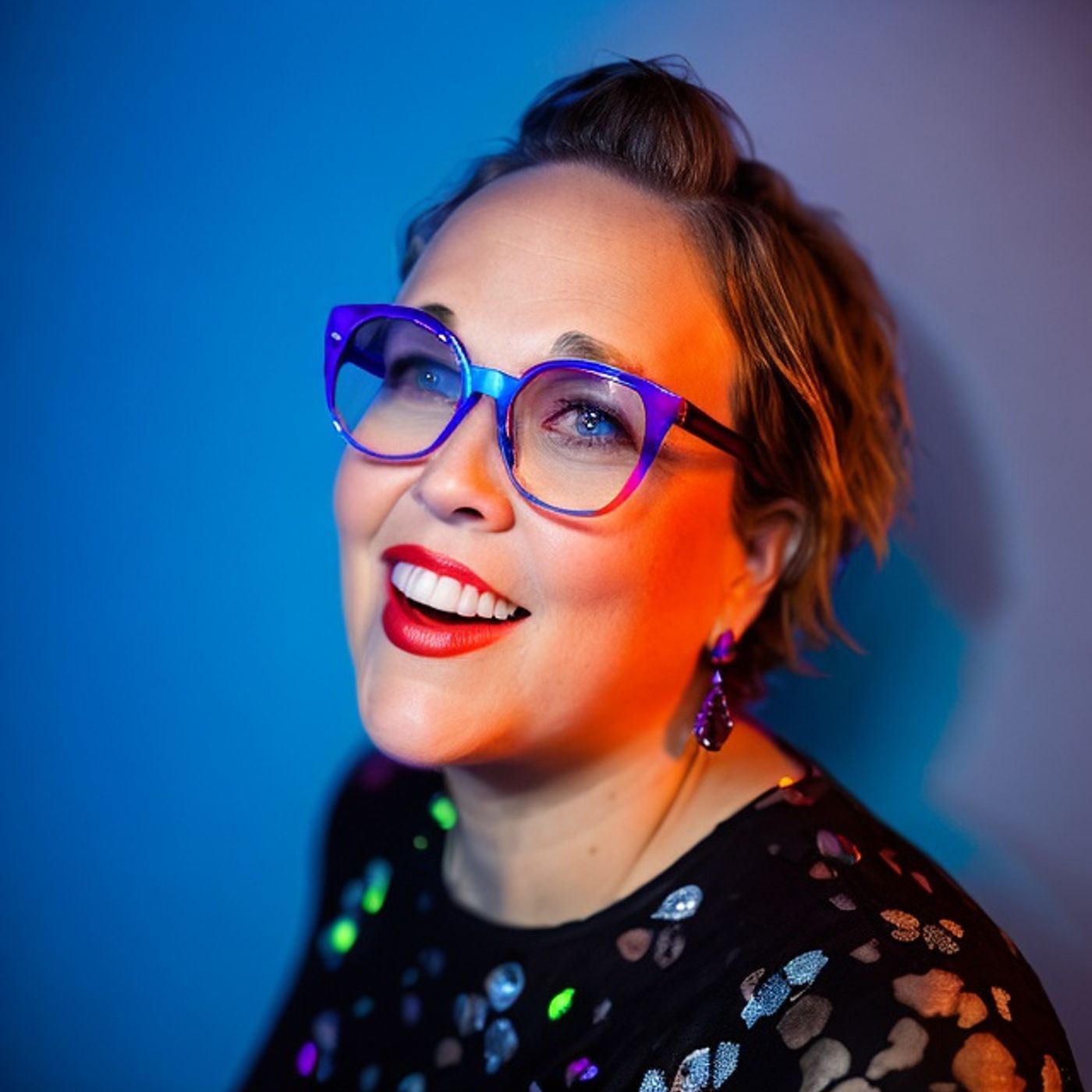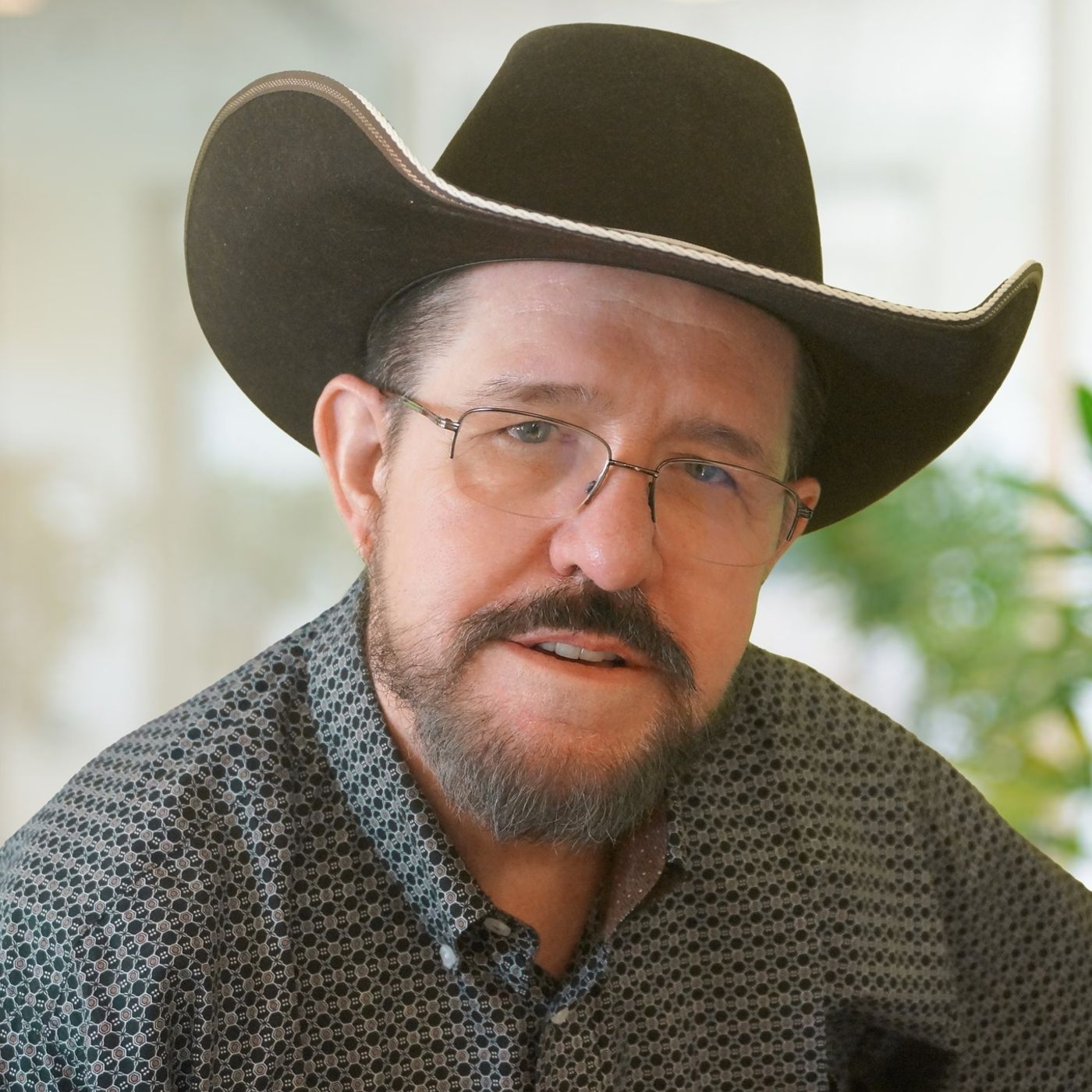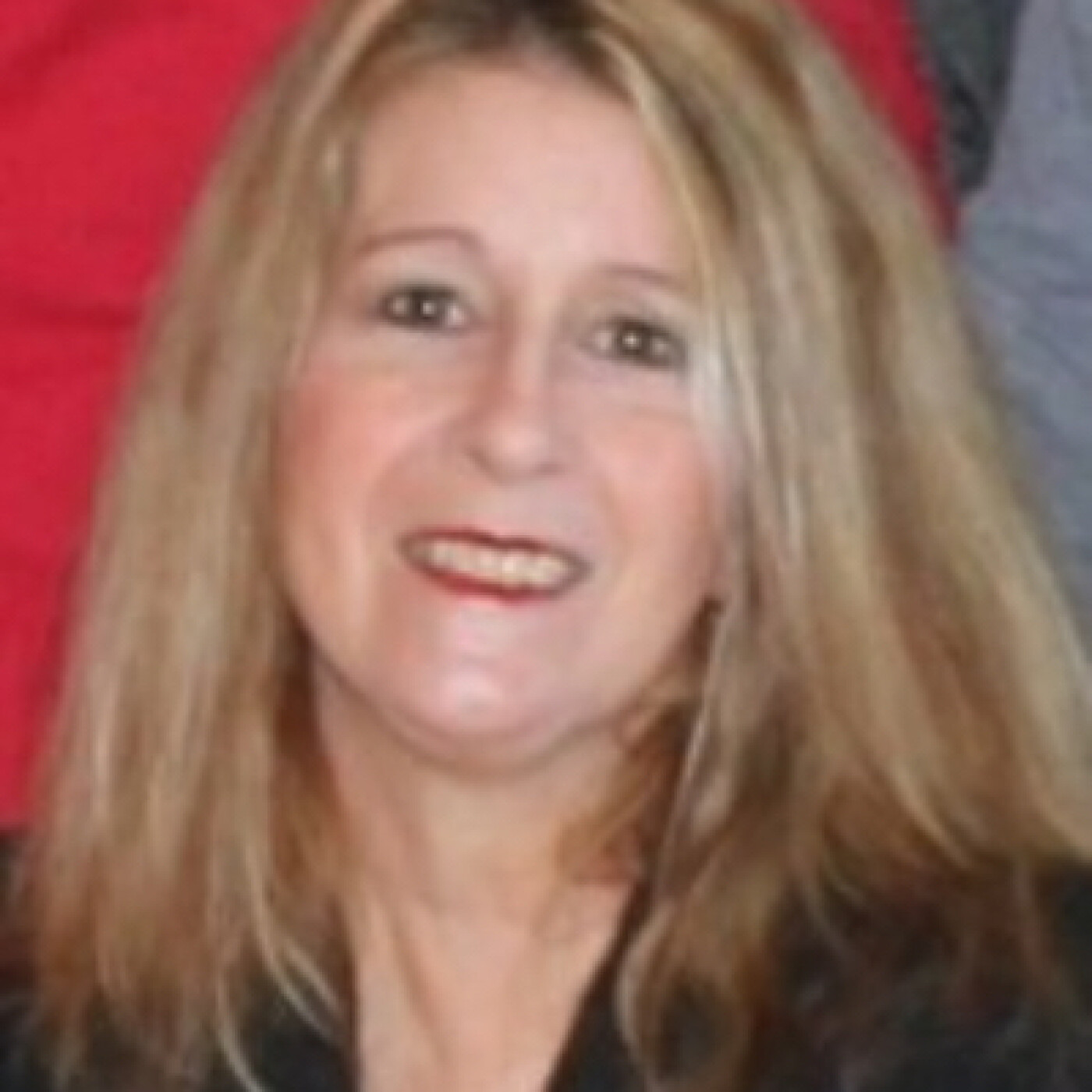Behind the Pages: The Real Politics of Energy in LA Starks' 'Winner's Curse'
A riveting dialogue unfolds as LA Starks joins David McClam on the podcast, where she delves into the intricate worlds of energy politics and thrilling fiction. The episode begins with a heartfelt message from the host, addressing mental health awareness, which sets a compassionate tone for the conversation. Starks, known for her gripping thrillers, shares her journey from engineering to writing, highlighting her academic achievements and the unique perspective they lend to her storytelling. The discussion pivots to her latest work, 'Winner's Curse', which follows the formidable Lynn Dayton as she navigates a treacherous landscape of corporate sabotage and high-stakes energy dealings.
Starks elaborates on the character of Lynn Dayton, portraying her as a strong, multifaceted woman fighting against the odds in a male-dominated industry. This character is not just a representation of strength but also embodies the complexities of navigating power dynamics within corporate environments. The conversation further explores the thematic connections between Starks's fictional narratives and current global energy issues, showcasing how her real-world expertise informs her writing. The episode emphasizes the importance of representation in literature, especially strong female characters who challenge societal norms and expectations.
As the dialogue progresses, listeners are introduced to the broader implications of energy politics, with Starks drawing on her professional experiences to illustrate the challenges and triumphs faced by women in the field. The episode culminates in a compelling invitation for listeners to engage with 'Winner's Curse', framing it as not only an entertaining read but also a reflection of the pressing issues facing the energy sector today. McClam’s closing remarks reinforce the significance of storytelling in understanding complex societal issues, encouraging an appreciation for the narratives that shape our world.
Takeaways:
- The podcast emphasizes the importance of mental health awareness and encourages listeners to reach out for help.
- Lynn Dayton, the protagonist in LA Starks's book, embodies a strong female character in a male-dominated industry.
- The energy sector is depicted as high-stakes, providing a compelling backdrop for thrillers.
- LA Starks combines her engineering background with her passion for writing to create engaging thrillers.
- The conversation highlights how current political issues around energy are reflected in Starks's writing.
- Listeners are reminded of the significance of supporting authors by purchasing and reading their works.
Get your Copy of Winners Cures HERE
Chapters:
- 00:00 - Introduction to the Podcast
- 00:02 - Awareness and Support for Mental Health
- 00:20 - Welcome to True Crime Authors and Extraordinary People
- 00:39 - Meet the Host, David McClam
- 01:49 - Introducing LA Starks, Author and Engineer
- 06:55 - The Journey of Lynn Dayton: A Strong Protagonist
- 04:19 - Insights on the Energy Industry from LA Starks
- 04:46 - Exploring the Plot of Winner's Curse
- 05:47 - The Politics of Energy in Today's World
- 16:42 - LA Starks' Personal Experience in the Energy Field
- 26:23 - The Impact of the Pandemic on Energy and Environment
- 31:37 - Conclusion and Final Thoughts
DON'T FORGET TO RATE, COMMENT AND SUBSCRIBE
JOIN ME ON SOCIAL MEDIA BY FOLLOWING THE LINKTREE
Follow Our Family Of True Crime Shows
Deep Dark Secrets with LaDonna Humphrey & Amy Smith
True Crime, Authors and Extraordinary People With David McClam
Extinguished With David McClam & LaDonna Humphrey
Cover Art and Logo created by Diana of Other Worldly
Sound Mixing and editing by David McClam
Intro script by Sophie Wild From Fiverr & David McClam
Intro and outro jingle by Jacqueline G. (JacquieVoice) From Fiverr
00:00 - Untitled
00:00 - Introduction to the Podcast
00:02 - Awareness and Support for Mental Health
00:20 - Welcome to True Crime Authors and Extraordinary People
00:39 - Meet the Host, David McClam
01:49 - Introducing LA Starks, Author and Engineer
04:19 - Insights on the Energy Industry from LA Starks
04:46 - Exploring the Plot of Winner's Curse
05:47 - The Politics of Energy in Today's World
06:55 - The Journey of Lynn Dayton: A Strong Protagonist
16:42 - LA Starks' Personal Experience in the Energy Field
26:23 - The Impact of the Pandemic on Energy and Environment
31:37 - Conclusion and Final Thoughts
You are seen.
HostYou are worthy.
HostYou are not alone.
HostThe world loses one person to suicide every 40 seconds.
HostLet's change the stats together.
HostWe can say, not suicide, not today.
David McClamWelcome to true crime authors and extraordinary people.
David McClamThe podcast where we bring two passions together, the show that gives new meaning to the old adage truth is stranger than fiction, and reminding you that there is an extraordinary person in all of us.
David McClamHere is your host, David McClam.
HostWhat's going on, everybody?
HostAnd welcome to another episode of true crime.
HostAll this extraordinary people.
HostOf course, I'm your man, David McClam.
HostHey, if you guys haven't already, make sure you follow us on all of our social media.
HostOne link to a link tree will get you every place you need to go pertaining to the show.
HostAs you heard coming in, if you are someone that is considering hurting yourself or someone else, please leave this episode and go and dial 988.
HostThat is the hotline if you need help.
HostIf no one's told you this today, let me be the first to tell you, you are important, and I do need you to be here.
HostAll right.
HostIf you're following the calendar, you know, again, it is time for yet another author.
HostAnd I have a good one here for you today.
HostLet me tell you who our guest is.
HostShe earned a b's in engineering at Tulane University and an MBA at the University of Chicago Booth School of Business.
HostBesides writing high stake thrillers, she is a paid contributor to seeking alpha for her energy investment articles and has run 21 and a half marathons.
HostShe is the author of winners Curse.
HostPlease welcome LA Starks.
HostHey, LA, how you doing today?
LA StarksGreat.
LA StarksI'm delighted to be here.
LA StarksThanks so much.
HostDavid, I don't know if you are a wrestling fan.
HostI told my daughter's gonna say this, but she jumped out of her seat because I said, I have an interview with LA.
HostAnd she let me finish.
HostShe goes, why would La Knight?
HostI'm like, no, LA Starks.
HostThere's a guy named LA Knights in wrestling.
LA StarksI'll have to look him up.
HostBut first, let me say happy pub day to you.
HostAt the time of this shooting, your book winner's curse was released August 20.
HostSo congratulations on getting your book out to the world.
LA StarksIt's very exciting.
LA StarksWe've worked on it a long time, and it's a big day.
HostSo before we jump into that, here's a question I ask everyone that comes on the show.
HostIs there anything else about LA Starks that we should know that we don't?
LA StarksWow.
LA StarksLet's see.
LA StarksIt takes me a long time to write the books.
LA StarksHow about that?
LA StarksThey don't.
LA StarksIt's not an overnight process, so nobody should get too excited about the next one soon.
HostWell, none of the great books ever comes quickly, and you are definitely one in that as well.
HostI do want to tap into this when we get into the book, because there's a lot with this.
HostYou know, you have a b's in engineering.
HostYou do deal a lot with energy.
HostSo can you tell us a lot about what your job is dealing with energy?
LA StarksWell, yes, exactly.
LA StarksIn fact, I started as I was, I'm a reader, still a reader.
LA StarksLove to write.
LA StarksAuthors are, you know, the people I really like.
LA StarksBut I grew up in a refinery town, and there were lots of scientists and engineers around me.
LA StarksAnd plan b, when I figured out I needed to support myself, was engineering, and I got into it.
LA StarksAnd I particularly like the energy side.
LA StarksAnd the energy side really lends itself to thrillers because it's not just in one place.
LA StarksIt's not just in the United States.
LA StarksIt's not just in Texas or Louisiana.
LA StarksYou're dealing with countries all over the world, and they're either trying to get energy, trying to buy it or sell it, or both.
LA StarksAnd the stakes are just really high, which is perfect for thrillers.
LA StarksSo that's, I've, you know, I've been able, I've been fortunate to work in the energy business, and to me, it was just a natural for this other, you know, business that I love, thing I love, which is writing.
HostNow I'm going to read the audience the synopsis that's there, because when I read the synopsis of this book, and now that I'm reading the book is very close to home right now with what's going on in politics, especially around oil.
HostSo let me kind of read that first.
HostSo the first ever woman to lead the drilling division of Trico's energy protagonist, Lynn Dayton, is determined to prove herself capable, but finds herself facing more than just the usual water cooler backstabbing.
HostUndercutting her at every turn is former Trico's executive, Henry van der Voos, who blames her for his humiliating fall from power ruthlessness.
HostCompeting with Lin for control of Mitlin Oral, his own Playboy Sons company has revolutionary energy technology that people will kill for.
HostLynn must battle van der Voos and international power players who conspire to eliminate her and her colleagues for conspiracies to sabotage natural gas plants and complete a merger that will ensure that the technology remains in the hands of those that will use it to benefit the world.
HostWhen I read this, my mind goes to Kamala Harris, Donald Trump, other than just putting in there the presidency, if you change a few things here, it could be swung that direction.
HostIf anybody's paying close attention to politics right now, Donald Trump is making a big play for oil and to drill on that, and that's what he wants to do.
HostDo you realize how close your book is to current politics?
HostAnd if so, what made you want to write that one?
LA StarksThese thrillers are kind of the work that I do.
LA StarksI'm always kind of paying attention to what's going on.
LA StarksSo I'll look at who's exploring where in what part of the world, and because energy is so high stakes and because it's the basis of the economy, anybody, any country's economy, of course, it's fundamental to presidential politics.
LA StarksSo, yeah, it kind of all goes together.
LA StarksAnd there is a scene, there's a scene in Washington.
LA StarksThe plays on a national level, it tends to play sort of a regulatory constraining role.
LA StarksOn an international level, it's much more kind of who's doing what deals with whom, who's selling to whom.
HostSo let's talk a little bit about Lynn.
HostSo Lynn is the protagonist.
HostShe is the main character of this book, a strong woman, for one.
HostCongratulations.
HostWe don't have, in my opinion, enough stories that is done around strong women.
HostIn a lot of books that I've read where a woman has a part, she's usually very watered down or she has a little power, but not as much as the man.
HostLynn Dayton has all the power and she's fighting the big boys in this book.
HostHow did you come up with Lynn as a character?
LA StarksIt's drawn, of course, from my own experience and from experiences of people that I know, but also a lot from reading and kind of a lot from just what anybody would think.
LA StarksYou know, here's the situation.
LA StarksWhat would I do in this situation?
LA StarksIt is true.
LA StarksIt is true.
LA StarksIt's kind of a weird thing with, with oil and gas that there, it's not a lot of people, but they control a lot of resources.
LA StarksWhat's the best way to put that?
LA StarksLike reserves that are worth a lot.
LA StarksAnd so in my other job, I talk about oil and gas companies, and there'll be a few thousand people, but the reserves they control will be in the billions of dollars.
LA StarksAnd so that is a natural part of the oil and gas business is not specific to Lyn as a protagonist.
HostWell, whenever I read her, I, my mind goes to the show Yellowstone.
HostIf you ever read that or watch that show.
HostBeth is the woman that you really don't want to deal with.
LA StarksWell, here I think the role that she has that's maybe different than like the prototypical sort of oil and gas or, you know, Guy role is, is that she is really focused on, as all engineers are, safety, the safety of her people.
LA StarksYou know, she's responsible for a lot of people and she feels that responsibility very, very deeply.
LA StarksAnd so when her people are threatened, that's kind of, that's her like, call to action, if you will.
HostSo I don't want to give too much of the book away because the book is great.
HostYou guys need to go and read this book.
HostNow this is only one book in the series.
HostThere's three other books that deals with Lynn Dayton.
HostDoes a reader have to read those other three books before they read these?
HostThis one or is these as standalone books?
LA StarksThese are these.
LA StarksThey work as standalones.
LA StarksIt's the same protagonist, but the story, you know, and there'll be a reference here and there, but they definitely work as a standalone.
LA StarksSo you can come in at any book in this series and it's self contained.
HostSo how did you come up with the plot of the book and especially Henry van der Voost?
LA StarksHenry van der Boost, well, he is a character from the first book, but what I really drew from was situations I've seen.
LA StarksAnd this is a, for your readers who read the Bible, there's Abraham and Isaac.
LA StarksAnd this is kind of an Abraham and Isaac story that's a father son.
LA StarksAnd it's kind of how much will the father, will the father sacrifice his son?
LA StarksI mean, I don't think I'm giving too much away by saying that that's sort of the meta part of it with the plot.
LA StarksI wanted to really start with the hub of the energy business, which is Midland.
LA StarksBut as you see when you read it, kind of goes everywhere.
LA StarksSo to Spain, to hungary, to the UK and those threads that involve all of those.
LA StarksBut I really, I have wanted for a while to write about Midland because it's not like any place else.
LA StarksIt's not, you know, sort of, it's not giant.
LA StarksIt's not east Texas.
LA StarksIt's real.
LA StarksIt's really fast.
LA StarksIt's really aggressive.
LA StarksAnd the people there are really just, you know, kind of wary because there's, because there's, it's so boom and bust and so, you know, you can be paying, you know, $500 for a hotel, you know, one night and, you know, 100 the next or 75 the next.
LA StarksAnd it's, you're kind of like, okay, well, it's fine, you know, whatever.
LA StarksSo that's, and it's, it's, it's sort of like the desert, but not exactly.
LA StarksSo I wanted to, to capture all that.
HostWell, you do a good job in doing that.
HostI'm being very careful because your book takes off.
LA StarksRight.
HostSo if you read the book, you're not Lily gagging around before things starts to happen in the book.
HostSo it's kind of one of those, when I interview other authors, if I say, hey, I can tell you like five minutes, but your book takes off.
HostI appreciate that because to me, in the thriller, I love authors who just gets to whatever I'm getting to because I have a short period of time that I can read throughout the day.
HostAnd if I'm reading the first 40 pages and it's leading me to the story, I've lost interest.
HostAnd that is definitely not the case in your book.
HostI'm like, wow, this was going to really just introduce and we just going to go.
HostSo doing what you do, you know, how did you go from being a chemical engineer and how did you wind up writing thrillers?
LA StarksWell, I am, as I said, kind of chemical engineering wound up being sort of my plan b.
LA StarksAnd I do, you know, I love it.
LA StarksI mean, it's this, it explains a lot.
LA StarksAnd so, you know, got my bachelor's, decided I worked in a refinery, decided I didn't want to work in a refinery sort of the rest of my life.
LA StarksSo went to business school, and then, you know, the energy business kind of goes up and down, booms and busts.
LA StarksAnd I caught a like toward the end of, of a boom, and it was kind of headed down, but worked in it for a long, long time.
LA StarksTook some time off with my kids.
LA StarksI was lucky enough to be able to spend time with my kids.
LA StarksAnd then it sort of came back up.
LA StarksAnd by this point, I was starting to.
LA StarksThe Internet was far more available, and it was kind of like, okay, I know something about this business.
LA StarksI really care about it.
LA StarksI'm looking at the supply and demand situation.
LA StarksIs there something I can write about?
LA StarksIs there a way I can write about investing in the business?
LA StarksThat's what I've been doing for the last several years on what you would call the nonfiction side.
LA StarksSimultaneously, I was able to finally start, you know, version one of book one several years ago and 50 revisions later.
LA StarksIt was a book, but it's a any, as all I'm sure of your writers tell you, it's a process.
LA StarksAnd I seemed to find as many blind alleys as anybody when I was first starting.
HostSo I'll ask you this question, because I ask all authors this, and I usually get the same answer.
HostSome, I get one that's different.
HostSo these characters that you create and you're, and, you know, to put on paper, do they become a living, breathing person to you?
HostDo you live with them in your head all times?
LA StarksSometimes they go to sleep when I've, when I, when I've paused or when I'm not, you know, I'm, when I'm not in the middle of writing a book, I don't think about them as much when I'm writing the book and particularly when I'm revising him.
LA StarksThey are real to me.
LA StarksAnd I do think particularly, why are they doing what they're doing?
LA StarksWhat are they after?
LA StarksWhat's their motivation?
LA StarksAnd what drives all books, certainly, at least all thrillers, is conflict.
LA StarksHow many kinds of conflicts can I put in there?
LA StarksSo then I am trying to perpetually put them in hot water.
HostNow, I know that this is book four in the Lynn Darton Dayton series.
HostIs it ending or do you have plans of writing more books based on Lynn Dayton?
LA StarksIt's, you know, and that's actually many people.
LA StarksAnd this, one of the keys for writers, at least for me, is to name the characters.
LA StarksAnd so Lynn Dayton wasn't her first name.
LA StarksIt was something else.
LA StarksVery often you'll see the names of cities, and that's here, that's delivered.
LA StarksDayton, like Dayton, Ohio.
LA StarksSo that's, you know, sort of reals, Ohio central, you know, kind of basic american.
LA StarksI would, I don't have a contract for the next book, but I do have places.
LA StarksI, you know, at least often I start with locations, and I do have two locations that I would love to put into the next book.
LA StarksSo, so that's where I am with it now.
HostI know that probably this question I ask you probably sparked some of lint dating in the, in the book.
HostBut as a female, that is an energy investor, how hard is it?
HostA lot of things we read in the book is, you know, is that true?
HostI'm sure by other dudes.
HostAre you trying to be shut down by men because you are a woman?
HostHow do you feel it is for you as an energy investor?
LA StarksOn the energy investing side?
LA StarksI get a lot of what I would call just sort of normal responses, and that's a measure, really, of how far things have gone and how much things have changed in that role.
LA StarksI'm not exerting a particular kind of power.
LA StarksAnd very often, you'll see this kind of, oh, not psyop stuff, but certainly, you know, the backstabbing, the struggles, whatever, over something that's really just lies, as with the presidential election we're talking about, that has a lot of.
LA StarksThat's important.
LA StarksThat's really.
LA StarksAnd here on the energy investing, it's, I think, a lot about my investors.
LA StarksI want to get things right.
LA StarksI want to get things right for myself, but it's not life or death.
LA StarksAnd so with the book, I'm really trying to, you know, up the ante, which means a lot less meetings in the book.
HostSo I have to ask.
HostI know you probably knew I was going to ask this, but I got to know.
HostSo can you tell us exactly what a cooling tower is and how you got trapped in one?
LA StarksOkay.
LA StarksYes.
LA StarksWell, this was when I was a baby engineer, and it was either an accident or it was hazing.
LA StarksI really, to this day, I don't know which it was.
LA StarksI was working in a refinery, and I was a tech service engineer.
LA StarksAll the baby engineers start out as tech service engineers.
LA StarksAnd so you're doing projects around the refinery, and this project was to measure the temperature differential in.
LA StarksIn a water tower.
LA StarksIt's not the.
LA StarksNot the cooling tower that you think of with, like, a nuclear plant, but it's more like a big, square wooden box.
LA StarksThe water runs through it, and by, you know, being exposed to the air, it cools off.
LA StarksIt has it.
LA StarksAnd so I was.
LA StarksI measured the water on the top, you know, and that's great.
LA StarksYou measured the temperature.
LA StarksBut then I had to go inside, and inside, it's like, it's dripping, it's wet, it's dark, you know, it's like being in a cave, really.
LA StarksAnd the door only latched from the outside.
LA StarksSo I'm inside, I'm taking the temperature measurements, and I can't open the door.
LA StarksAnd I can't open the door, and I can't open it.
LA StarksAnd it seemed like, you know, an hour.
LA StarksWell, finally, somehow, some way, I got the door open.
LA StarksBut for everybody who's ever experienced any kind of claustrophobia, it just.
LA StarksIt really.
LA StarksAnd it came back really hard, you know, when I wrote this scene because, oh, my God, that was awful.
LA StarksThat's.
LA StarksThat's.
LA StarksThat is.
LA StarksThat is that story.
LA StarksPeople have been.
LA StarksIf you've been in caves and kind of like, are been lost, it's like, oh, my God.
LA StarksAnd that's.
LA StarksThat's what I was trying to portray.
LA StarksI mean, and that, and that is, I mean that's what happened.
LA StarksBut that's also, I was trying to describe that and that there's a reference to that experience in the first book.
HostSo tell me, why do you think politics and, you know, things like energy and things like that, why do you think that those make great thrillers?
LA StarksBecause they, things happen fast, which is part of thrillers.
LA StarksThere's a strong, pretty strong element of suspense.
LA StarksYou don't know how things are going to turn out.
LA StarksIt affects millions, billions of people.
LA StarksSo the stakes personally from a people standpoint are high and from a financial standpoint are high.
LA StarksI think about this a lot with new economy, developing economies and there's some discussion.
LA StarksWell they should start off with renewables.
LA StarksWell, most developing economies start off with the coal.
LA StarksAnd the reason for that, which is, you know, I, and which I totally understand the reason for that is it's affordable.
LA StarksIt's, you know, it's, it's always there.
LA StarksYou know, it's, you can, you can get your electricity twenty four seven and you just, you know, people know how to do it and that's, that's okay.
LA StarksI mean you start with, you know, some basic energy and you build your, your economy and then, and then as we get richer and we're fortunate to be in that position, you know, we think of ways to reduce emissions, to be cleaner, to be, you know, more environmental.
LA StarksAnd that's all important, too.
HostYes, it did greatly.
HostI just always wonder that because, you know, a lot of the thrillers that we read deals with kidnapping, death, murder.
HostI have run into a couple that does deal with politics.
HostAnd I always wondered, okay, why does politics really, you know, make a good, I mean, with the scene we have playing out now, I mean if anybody wrote a book the way this is going, it would be a great read.
HostBut I always wonder that, I mean, to tack onto that question, do you ever get any backlash from people that is political or from people that is in the energy field?
LA StarksI don't think so.
LA StarksI mean I, not really.
LA StarksThere are definitely people who have, you know, this have a certain view.
LA StarksThere's a stereotype, you know, oil and gas is bad and then they don't, you know, so they can't, they don't, there's no nuance.
LA StarksThat's kind of like not interested.
LA StarksI mean, in fact, the second, the third book, I have scenes, it's set in New Orleans and in northern California and I recall a northern California bookstore, you know, beautiful place, all that kind of stuff.
LA StarksAnd they just said you know, you know, could you make your next book about renewables?
LA StarksSo that's, I do, you know, people do definitely have opinions.
LA StarksAnd what I, what I really wanted to do here and throughout is there are these very interesting risk takers in the energy business, in the oil and gas business, and they're perfect for thrillers.
LA StarksAnd I wasn't seeing that and I wanted to portray that not unlike the way that we've been introduced to ranch life in Yellowstone and kind of how.
HostThat works, being that you are an energy, I have this question for you.
HostThis is another thing that's kind of on the ballot this year, is when it comes to, you know, gasoline cars versus electric cars.
HostI know in my state, which is California, Gavin Newsom, who's the governor here, is pushing a collective to move us more towards the electric side.
HostBiden is trying to put things in play that I guess by 20, by 2030 they would all be gone.
HostDo you feel like that there still is a spot for gasoline driven vehicles when electric vehicles now is cleaner, seem to cost less energy than gas at the pump.
HostWhat's your thoughts on that?
LA StarksI absolutely do, of course.
LA StarksBut for me, I've got some friends who've got, for example, Teslas, and they're sweet cars.
LA StarksThe acceleration is beautiful.
LA StarksThey're quiet, all the things that we love about electric cars, so they are amazing.
LA StarksNow, I will say in terms of them being clean, electric cars being clean, you look to what your energy source is.
LA StarksElectricity is a secondary source, and it's fueled by primary sources.
LA StarksAnd the primary sources that we think of as clean are solar and wind, hydro.
LA StarksNuclear is coming back in, but there's also a lot of electricity that's fueled by some still by coal less and natural gas, which is kind of low carbon.
LA StarksSo I think in California, the electricity is natural gas and renewables, and that's all pretty low carbon.
LA StarksIn China, your electric car is basically, you're running your car on coalition.
LA StarksSo it's not quite as clean as one would think.
LA StarksI worked for a company that became part of BP that was based in California, and I went to, I was out in Los Angeles several times, and I just really, really, really sympathize and understand it's a beautiful state.
LA StarksAnd if you're in Los Angeles and you're there when there's the bowl effect, you're getting the smog and the clean air.
LA StarksWe're all about clean air.
LA StarksWe're all about clean water.
LA StarksAnd I totally get that.
HostI've always said when it came to clean air and water, things like that.
HostAs horrible as the pandemic was, it showed us a lot of different things.
HostThe United States was never as clean as it was in 2020.
HostWe had animals that has never communicated with their young underwater doing so again, I think there's a lot of things to be learned from that.
HostDo you think, in the energy field and beyond that, they took a lot of cues of what happened and tried to make things better.
HostAt this point, after the pandemic, I.
LA StarksThink that if you'll talk to, for example, when I listen to, and I listen to a lot of different folks in the energy business, but in Pennsylvania and Midland, wherever.
LA StarksBut what strikes me as Pennsylvania, because Pennsylvania is first, where the.
LA StarksWhere the shale oil was developed.
LA StarksShale oil, more shale, natural gas was developed.
LA StarksAnd the guys who run those companies say, we hunt, we fish, we want everything to be just as clean as everybody else does.
LA StarksSo the industry has a pretty vested interest in keeping things cleaned up and keeping it rolling.
LA StarksIt's absolutely true that what the pandemic showed us is just like what we're doing right now.
LA StarksWe could have these conversations at a distance without being in the same room, and that was just.
LA StarksIt was enlightening.
LA StarksAnd honestly, it's a wonderful thing.
LA StarksI go to write to my parents.
LA StarksMy parents don't live here in the same town that I do.
LA StarksThey're 300 miles away.
LA StarksBut one of the first people I knew who used Zoom was my mother.
LA StarksAnd all of a sudden, we're communicating much better and on a much more regular basis.
LA StarksSo I almost think what it was particularly good for, what the pandemic was particularly good for was improving, enhancing our ways of communication and.
LA StarksYes, exactly.
LA StarksYou didn't have to, you know, get on a plane every time you wanted to talk to somebody.
HostSo, in regards to winners curse, can you tell us, what do you want readers to take away from the book?
LA StarksI really.
LA StarksMy first thing with every book is I want people to be entertained, and I want them to, you know, have a good story and, you know, want to turn the pages and.
LA StarksAnd get to the end of it.
LA StarksI, you know, I'm very cognizant and sensitive to the difference between fiction and nonfiction, and so there's some, you know, there's definitely real life stuff in there, and I want people to kind of, you know, here's what goes on with Midland and here, you know, all this kind of stuff.
LA StarksBut.
LA StarksBut really, it's just, you know, I want them to have fun with the book, and that's a.
LA StarksThat's primary.
HostWhy should someone go out and buy a copy of winner's curse?
LA StarksWell, it's, it's entertaining.
LA StarksIt's my quick summary.
LA StarksIt's a suspenseful thriller filled with energy intrigue, as my folks say, ripped from today's headlines.
LA StarksAnd it's a story about conspiracies to get control of a valuable oil field technology and to sabotage natural gas plants.
LA StarksAnd as the first woman to lead her drilling division and her company, the protagonist, Lynn Dayton, her challenges escalate to thwarting these conspiracies.
LA StarksSo it's a, I put a lot into, into making it a good story.
HostSo in closing, is there anything you'd like to say to your fans or anyone that's listening today?
LA StarksBuy the book.
LA StarksBut no.
LA StarksYes.
LA StarksI mean, of course.
LA StarksBut I really, I appreciate all my fans and all my readers and I think of you as I write the book and particularly as I revise it to make it interesting to you.
LA StarksAnd so it's my, you are my audience and I want to, I want for you to find the book interesting and suspenseful and to be flipping the pages past midnight.
HostWell, hey, thanks for coming on the show.
HostI could tell you the book is fabulous.
HostI'm going to go check out your other books now because you write really well.
HostIt really was intriguing as a page turner and you're dealing with today's headlines.
HostAnd I do think as an author, that's bold, because now in today's climate, if we just say anything about politics, whether it's for or against, you get your throat jumped down.
HostSo I do think that you were very courageous writing about this.
HostAnytime you want to come back on the show, you know how to get a hold of me.
HostPlease let me know.
LA StarksDavid, thank you so much.
LA StarksThis has been so much fun.
HostAll right, guys, that was the fabulous La Starks.
HostYou can get her book winter's curse at Amazon and other places books are sold.
HostIf you are a Kindle unlimited subscriber, you can read it for free.
HostHowever, I remind you, as always, just because you download it does not support LA.
HostYou need to read the book and turn to pages for her to get paid.
HostAlso, while you're there, go ahead and check out her other books, which I'm sure is just as great as this one.
HostAlright, once again, thank you for joining me today.
HostI know you have many choices in true crime and interview podcasts.
HostI am grateful that for the last two and a half years you have chose me.
HostYou have been listening to the only three faceted podcasts of its kind.
HostBe good to yourself and each other.
HostAnd always remember, always stay humble.
HostAn act of kindness can make someones day.
HostA little love and compassion can go a long way.
HostAnd remember that there is an extraordinary person in all of us.
HostIll catch you.
HostCatch you guys on the next one.
David McClamDon't forget to rate, comment and subscribe.
David McClamJoin us on social media.
David McClamOne link to the link tree has it all.
David McClamFeel free to drop us a line@trucrimentauthorsmail.com.
David McClamdot Sound mixing and editing by David McClam intro script by Sophie Wild and David McClam theme music Legendary by new Alchemist introduction and ending credits by Jackie Voice.
David McClamSee you next time on true crime.
David McClamAuthors and extraordinary people.





